

Wholesaling is one way for many manufacturers to get their products doled out to the market distributors. In this trade, buyers purchase goods in bulk from suppliers at a low price and sell them at a higher price. It is also very much applicable in the real estate industry where a certain wholesaler reaches out to a real estate agent and gets into an agreement to find a property buyer. In exchange for the effort, the wholesaler can increase the original price and make it as his or her profit if the selling activity is successful. Whether your purpose is relevant to real estate or not, knowing about the trading process’s agreement is highly beneficial. This is why we highly recommend you to check out our article and examples below.
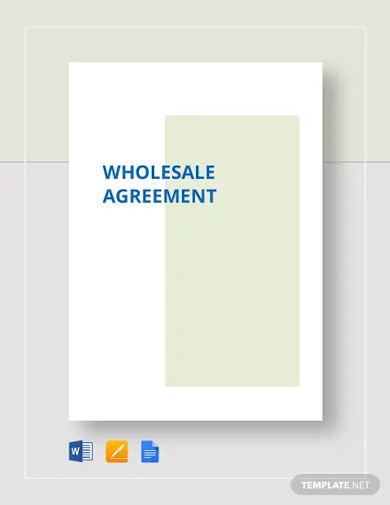

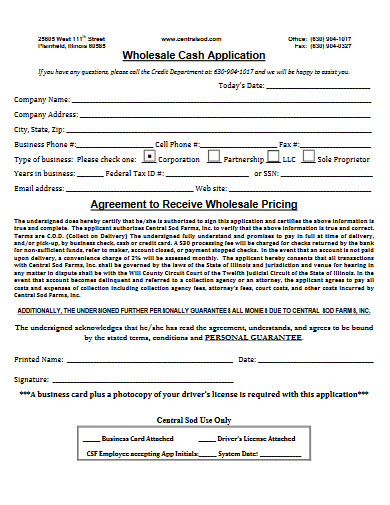
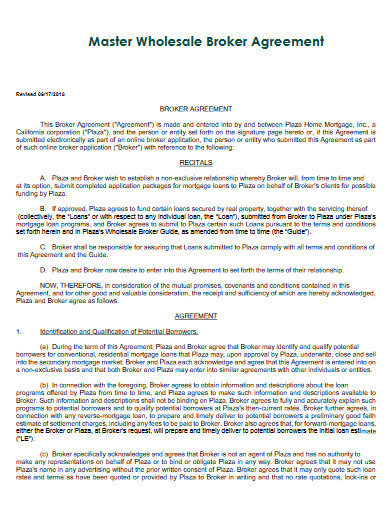
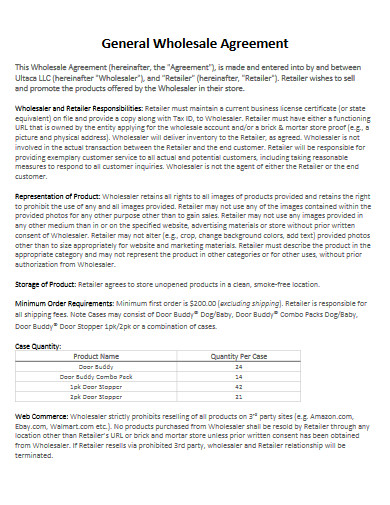
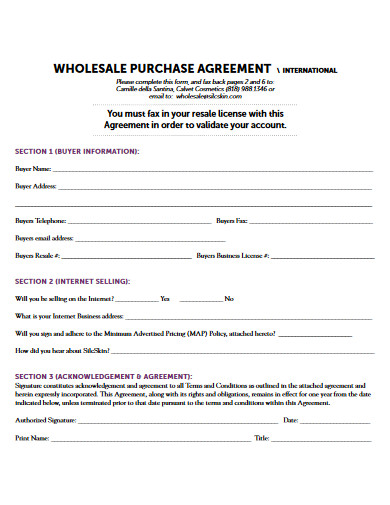
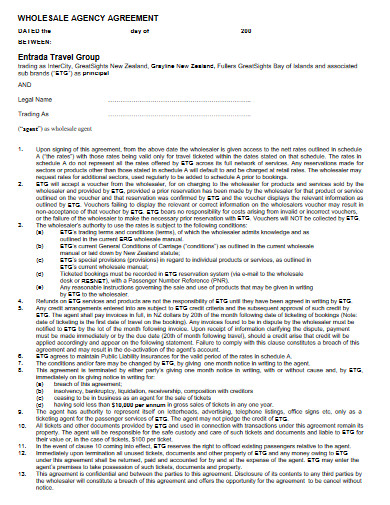
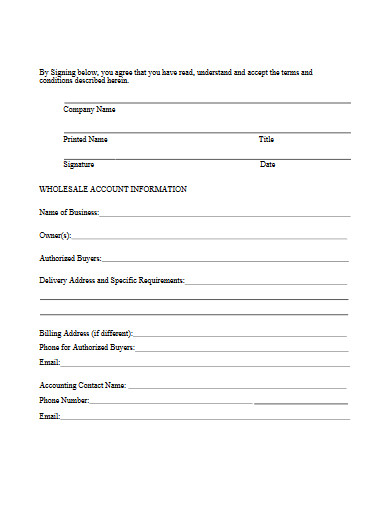
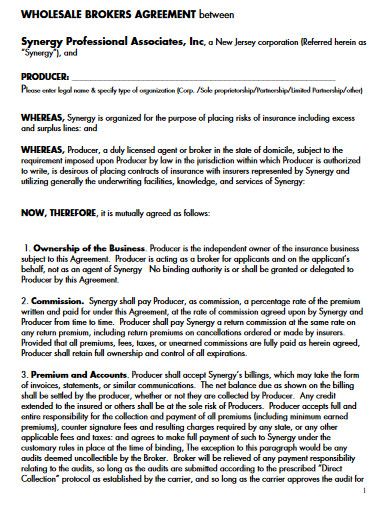
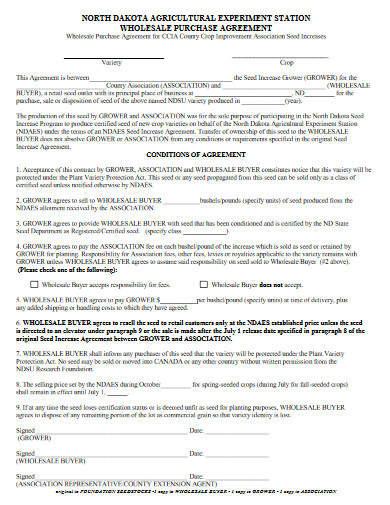
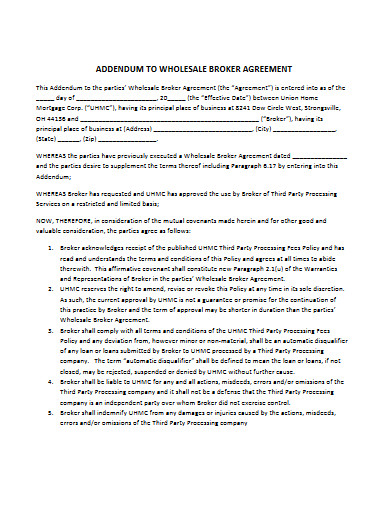
A wholesale agreement is a legal document that binds two parties on a wholesaling arrangement. The legal service provider Young & Partners shared that there are two types of wholesale agreement. The first one is the exclusive wholesale agreement, where the supplier of goods agrees with the other party not to engage with another distributor on a specified area. The second type, which is the non-exclusive wholesale agreement, has the complete opposite description. Both are essential in maintaining good business relationships between suppliers and wholesalers by ensuring that both abide by their obligations.
A supply chain is the interconnection of individuals or organizations and their various resources and operations that encompass the production, delivery, and sale of products and services. The management of this process, known as the supply chain management (SCM), helps manufacturers control their product distribution expenses. While doing so, it also enables the manufacturers to deliver their respective products and services to the consumers faster and more conveniently. The key to the management’s success is having tight supervision on the supply inventory, operations management plan, sales plan, supply distribution, and the vendors’ business inventory.
Writing contracts and agreements is one of the challenging activities of writers, especially for those who are not practicing law. As part of the technical writing discipline, you have to incorporate certain qualities to become effective. These qualities include being concise, relevant, and up to the standards. To help you put them all in your wholesale agreement, check out our standardized outline below!
Just like any other agreement, you have to give out the basic information about your company. These pieces of information should include your company name, address, and contact information. Some companies would also include their company logos to increase visibility.
One of the purposes of wholesaling is to provide entrepreneurs with opportunities to get your products at a lower price and profit by reselling them at a slightly higher price. Thus, you have to validate that who you agree with is a legit businessman and not just another customer who wants to take advantage of the discount. You can put this and other stipulations in this section.
By definition, wholesaling requires buyers to purchase products in bulk. To ensure buyers’ compliance with these, make sure to make a list of specific requirements for them. You can do this by setting the minimum quantity or minimum amount of order or both. Aside from these, schedules for purchases must also be taken into consideration.
Payment is an essential element of every bargain, and this is why you must never forget to put them into details. Matters like payment method, payment schedule, and payment prices have to be taken into account. Wholesale agreements commonly use three payment methodologies, including prepaid payment, cash on delivery, and net option.
After presenting the payment details, tackle the complete process of how the products will be delivered. It means that you have to indicate the couriers’ names, their delivery quotations, and return policy.
All wholesale product buyers are retailers, and many of them would ask for the manufacturer’s suggested retail price (MSRP). This will serve as the basis of their retail selling price. Depending on how competitive the retailers’ markets are, the price can either be lower or a little bit more expensive than the MSRP.
Your planned wholesale agreement will contain several sensitive information about your company or your products. That is why you have to include a non-disclosure agreement (NDA) or a business confidentiality agreement in it. The said agreements can help either party in protecting all the pieces of private information.
Part of the wholesaling transaction is providing authorization to retailers to resell the manufacturers’ products. Thus, you have to write a different clause that’s intended for your copyright statement.
Signatures are proofs of both parties’ acknowledgment and approval of the set obligations, terms, and conditions in the agreement. To bind both you and the other party on these things, you must provide enough space to imprint both of your representatives’ signatures.
According to Paul Esajian of FortuneBuilders, a real estate assignment of contract is a wholesaling strategy where a real estate agent, known as the assignor, authorizes another party to sell a property.
There are five pricing strategies. These include cost-plus pricing, competitive pricing, value-based pricing, price skimming, and penetration pricing.
Wholesalers can be categorized into three, including merchants, brokers, and manufacturers’ branches.
Merchant wholesalers refer to the firms that buy bulk products and resell the products individually directly to customers or smaller firms.
Brokers are individuals who do not own any product but still assists manufacturers in selling them in exchange for commissions.
Manufacturers’ branches are firms that are owned by the manufacturers, purposely organized to expand the product distribution coverage.
Wholesaling is a completely beneficial venture for both entrepreneurs and manufacturers. And just like other business undertakings, it comes with risks even during the negotiation phase. Luckily, a wholesale agreement is there to help resolve issues if the said risks will take place.